
Stephen Bell
Massachusetts Institute of Technology
USA
EMBO | EMBL Symposium
There has been tremendous progress in the past few years regarding our understanding of DNA replication in eukaryotes, both yeast and mammals. Many important questions in the field are poised to be answered within the next decade. These include understanding DNA replication at the biochemical and three-dimensional protein structure levels. In addition, studies using high throughput technologies at the cellular and organismal levels are poised to answer how accurate replication of the genome is ensured by controlling origin firing in space and time.
Several human diseases, including cancer, have already been linked to DNA replication stress, a term that refers to perturbations in DNA replication. Therefore, a better understanding of how cells respond to this will help us understand disease development and responses to therapy. By bringing together experts in the basic biology of DNA replication and DNA replication stress, this symposium aims to fuel further progress in these important fields.

Massachusetts Institute of Technology
USA

University of Copenhagen
Denmark
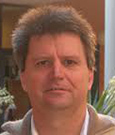
University of Seville
Spain
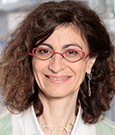
Institut Curie
France
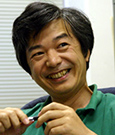
National Institute of Genetics
Japan
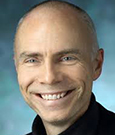
Johns Hopkins School of Medicine
USA
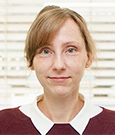
Friedrich Miescher Institute for Biomedical Research
Switzerland
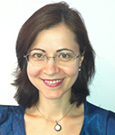
F.I.R.C. Institute of Molecular Oncology
Italy
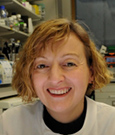
University of Aberdeen
UK
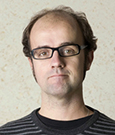
Spanish National Cancer Research Centre
Spain
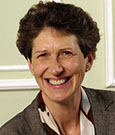
Friedrich Miescher Institute for Biomedical Research
Switzerland
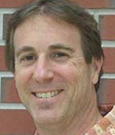
Florida State University
USA
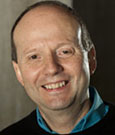
University of Copenhagen
Denmark
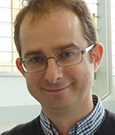
University of Dundee
UK
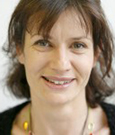
Institut Curie
France
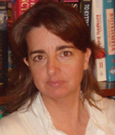
University of Patras
Greece
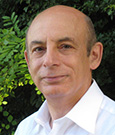
Institute of Human Genetics-CNRS
France
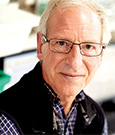
Michael O’Donnell
USA
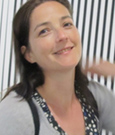
University Paris Diderot-CNRS
France
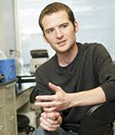
Memorial Sloan Kettering Cancer Center,
USA
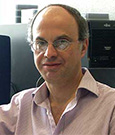
University of Geneva
Switzerland
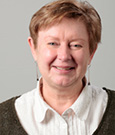
Gustave Roussy
France
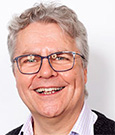
The Francis Crick Institute
UK
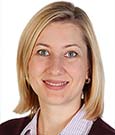
EMBL Heidelberg
Germany
| Time | Speaker |
|---|---|
| 11:30 – 13:15 | Registration and Lunch |
| 13:15 – 13:30 | Opening remarks |
| 13:30 – 14:30 | Mechanisms and Regulation of Eukaryotic Replication InitiationKEYNOTE: Stephen Bell, Massachusetts Institute of Technology, USA |
| Session 1: Initiation of DNA Replication Chairs: John Diffley and Thanos Halazonetis | |
| 14:30 – 15:00 | Formation of bidirectional replication forks at origins Hiroyuki Araki, National Institute of Genetics, Japan |
| 15:00 – 15:30 | Structural mechanisms for initiating DNA replication James Berger, Johns Hopkins School of Medicine, USA |
| 15:30 – 16:00 | Conformational control and DNA binding mechanism of the metazoan origin recognition complex Franziska Bleichert, Friedrich Miescher Institute for Biomedical Research, Switzerland |
| 16:00 – 16:30 | Coffee Break |
| 16:30 – 17:00 | CDK misregulation inhibits loading of the replicative helicase to generate replicative stress John Diffley, The Francis Crick Institute, UK |
| 17:00 – 17:15 | Eukaryotic replisome assembly and fork progression visualized by cryo-EM Alessandro Costa, The Francis Crick Institute, UK |
| 17:15 – 17:30 | Establishing leading-strand synthesis at eukaryotic DNA replication forks Joseph Yeeles, MRC Laboratory of Molecular Biology, UK |
| 17:30 – 17:45 | Structural basis of replicative helicase recruitment by ORC, Cdc6 and Cdt1 Christian Speck,Imperial College London, UK |
| 17:45 -18:00 | Coordination of DNA damage tolerance in human cells: pathway choice gives priority to replication continuity Emmanuelle Despras, CNRS, France |
| 18:00 – 18:15 | The role of the AAA+ ATPase WRNIP1 in the protection of stalled replication forks Kerstin Gari, University of Zurich, Switzerland |
| 18:15 – 20:15 | Dinner |
| 20:15 – 22:00 | After Dinner Drinks and Welcome Reception in the ATC Rooftop Lounge |
| Time | Speaker |
|---|---|
| Session 2: Replication Origins and Timing of Firing Chair: Michelle Debatisse | |
| 09:00 – 09:30 | Characterization and activation of metazoan DNA replication originsMarcel Mechali, Institute of Human Genetics, CNRS-University of Montpellier France |
| 09:30 – 10:00 | Determinants of replication origins in vertebrate cells Marie-Noelle Prioleau, University Paris Diderot-CNRS, France |
| 10:00 – 10:30 | Identification of cis elements for spatio temporal control of DNA replication David Gilbert, Florida State University, USA |
| 10:30 – 11:00 | Coffee Break |
| 11:00 – 11:30 | A conserved role for RIF1 in protecting nascent DNA at stalled replication forks Anne Donaldson, University of Aberdeen, UK |
| 11:30 – 11:45 | Rif1 a hub connecting nuclear architecture and replication timing Sara Buonomo, University of Edinburgh, UK |
| 11:45 – 12:00 | Replication incompleteness under replication stress is crucial to CFS instability Chun-Long Chen, Institut Curie, France |
| 12:00 – 14:00 | Lunch and meet the speakers |
| 13:00 – 13:45 | ERC Workshop: All you need to know before applying Ino Agrafioti, European Research Council, Belgium |
| Session 3: Replication Forks and Termination of DNA Replication Chair: Ian Hickson | |
| 14:00 – 14:30 | Directionality of CMG translocation provides origin quality control and single molecule studies of CMG reveal mechanisms of replication restart and replisome preservation at collapsed forks Michael O’Donnell, The Rockefeller University, USA |
| 14:30 – 15:00 | Destroying the eukaryotic replisome Karim Labib, University of Dundee, UK |
| 15:00 – 15:30 | Coordinating DNA Replication Termination with Mitotic Entry Oscar Fernandez-Capetillo, Spanish National Cancer Research Centre, Spain |
| 15:30 – 16:00 | Coffee Break |
| 16:00 – 16:15 | Replisome disassembly in vertebrates Aga Gambus, University of Birmingham, UK |
| 16:15 – 16:30 | Roles of checkpoint-dependent inhibition of origin firing after replication stress Esther Cabañas Morafraile, University of Cambridge, UK |
| 16:30 – 16:45 | A DNA replication-dependent feed-forward loop determines CDK1 and PLK1 activation Bennie Lemmens, Karolinska Institutet, Sweden |
| 16:45 – 17:00 | Reconstituting DNA replication termination with purified proteins Tom Deegan, University of Dundee, UK |
| 17:00 – 19:00 | Poster Session I (odd numbers) ATC Helix A |
| 19:00 – 21:00 | Dinner |
| 21:00 – 23:00 | After Dinner Drinks in the ATC Rooftop Lounge |
| Time | Speaker |
|---|---|
| 8:15 – 9:00 | Career Workshop: Moderated by Thanos Halazonetis Speakers: Genevieve Almouzni, John Diffley, Susan Gasser, Karim Labib Meeting Room Helix A |
| Session 4: Transcription, Chromatin and Replication Chair: Sarah Lambert | |
| 09:00 – 09:30 | Building chromatin: histone variants and chaperones at work Genevieve Almouzni, Institut Curie, France |
| 09:30 – 10:00 | Transcription replication conflicts: R loops as obstacles to replication fork progressionAndres Aguilera, University of Seville, Spain |
| 10:00 – 10:30 | DNA replication and transcription in early development Iestyn Whitehouse, Memorial Sloan Kettering Cancer Center, USA |
| 10:30 – 11:00 | Coffee Break |
| 11:00 – 11:15 | Genome-wide control of heterochromatin replication by the telomeric protein TRF2 Eric Gilson, University of Nice, France |
| 11:15 – 11:30 | MRX, Set1 and Gcn5 modulate chromatin structure at stalled replication forks to promote resection of nascent DNA and cohesin loading Philippe Pasero, CNRS, France |
| 11:30 – 11:45 | Epigenetic regulation of replication origins Vincenzo Costanzo, F.I.R.C. Institute of Molecular Oncology, Italy |
| 11:45 – 12:00 | Mechanism of replication completion after mitotic entry in cells with under-replicated DNA Etienne Schwob, IGMM, CNRS, France |
| 12:00 – 14:00 | Lunch and meet the speakers |
| 14:00 – 15:00 | Chromatin replication and epigenome maintenance KEYNOTE: Anja Groth, University of Copenhagen, Denmark |
| Session 5: DNA Replication Stress – Basic Mechanisms Chair: Anne Donaldson | |
| 15:00 – 15:30 | DDK mediated regulation of the deSUMOylating enzyme Ulp2 facilitates early steps of DNA replication Dana Branzei, F.I.R.C. Institute of Molecular Oncology, Italy |
| 15:30 – 16:00 | Active role of histone deposition during replication fork restart Sarah Lambert, Institut Curie, France |
| 16:00 – 16:30 | Coffee Break |
| 16:30 – 17:00 | Replication licensing aberrations as a source of genome plasticity Zoi Lygerou, University of Patras, Greece |
| 17:00 – 17:15 | Map of synthetic rescue interactions for the Fanconi anemia DNA repair pathway identifies USP48 Joanna Loizou, CeMM, Austria |
| 17:15 – 17:30 | Replication Initiation Zones are Preferential Sites of Replication Fork Collapse Anthony Tubbs, National Institutes of Health, USA |
| 17:30 – 19:30 | Poster Session II (even numbers) ATC Helix A |
| 19:30 – 21:00 | Conference Dinner EMBL Canteen and terrace |
| 21:00 – 24:00 | Conference Party EMBL Canteen |
| Time | Speaker |
|---|---|
| Session 6: DNA Replication Stress and Cancer Chair: Oscar Fernandez-Capetillo | |
| 09:00 – 09:30 | Common fragile site instability: a race against time Michelle Debatisse, Gustave Roussy, France |
| 09:30 – 10:00 | Replication stress: Mechanisms, pathway cross talks and cancer treatment Jiri Bartek, Danish Cancer Society, Denmark |
| 10:00 – 10:30 | H3K9me2 and BRCA1 prevent satellite repeat transcription, R loops and germline sterility: roles for replication stress Susan Gasser, Friedrich Miescher Institute for Biomedical Research, Switzerland |
| 10:30 – 11:00 | Coffee Break |
| 11:00 – 11:30 | Mechanism of replication at common fragile sites Ian Hickson, University of Copenhagen, Denmark |
| 11:30 – 12:00 | Mechanisms of oncogene-induced DNA replication stress Thanos Halazonetis, University of Geneva, Switzerland |
| 12:00 – 12:15 | New regulatory pathway for BRCA1-mediated fork protection Jo Morris, University of Birmingham, UK |
| 12:15 – 12:30 | Replication-associated damage at genomic ribonucleotides provides a therapeutic vulnerability to PARP inhibitors Olga Murina, IGMM, University of Edinburgh, UK |
| 12:30 – 12:45 | CMG ubiquitylation is a DNA damage signal that activates two distinct ICL repair pathways Daniel Semlow, Harvard Medical School, USA |
| 12:45 – 13:00 | Closing Remarks and Poster PrizeThanos Halazonetis, University of Geneva, Switzerland |
| 13:00 – 13:15 | Packed Lunch |
| 13:30 | Bus Departure ATC Bus Stop |
Date: 7 - 10 May 2018
Location: EMBL Heidelberg